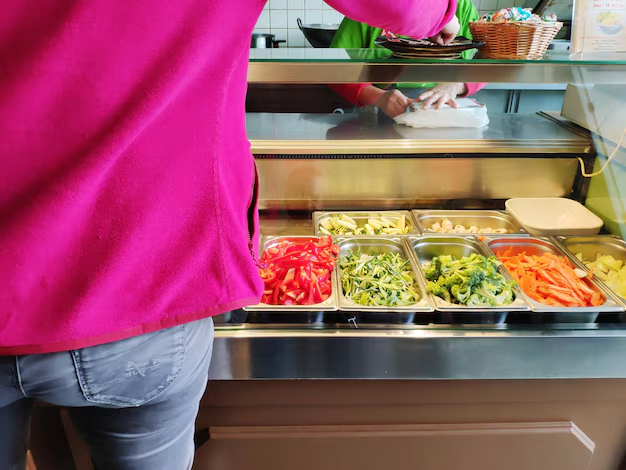How Long Can You Store Soup in the Refrigerator Without Worry?
Picture this: it’s a cozy Sunday afternoon, and the aroma of homemade chicken soup fills your kitchen. You made more than you could eat, anticipating weekday lunches and easy dinners. But how long can that delightful pot of soup safely stay in your refrigerator before the molecules of bacteria that you can't see start taking over? Let’s dig into everything you need to know about soup storage to ensure that every spoonful remains both delicious and safe to eat.
Understanding the Shelf Life of Soup in the Refrigerator
Soup typically lasts 3 to 4 days in the refrigerator when stored correctly. However, this time frame isn't set in stone; some factors can extend or shorten this period.
Influencing Factors
- Ingredients: Soups made with meat or dairy may deteriorate faster than vegetable-based options.
- Storage Conditions: How quickly you cool and store your soup can impact its longevity.
- Refrigerator Temperature: Maintaining your fridge at or below 40°F (about 4°C) is crucial.
Best Practices for Storing Soup
To maximize the shelf life and maintain the quality of your soup, follow these tried-and-true practices:
Cooling Quickly
Rapid cooling is vital. Don't leave soup out at room temperature for longer than two hours. For large quantities, consider using an ice bath to quickly bring down the soup's temperature before refrigerating.
Airtight Containers
Use airtight containers to store your soup. This prevents the soup from absorbing other odors and flavors and helps maintain its freshness.
Proper Portions
Store soup in individual portions. This not only speeds up the cooling process but also makes it easier to reheat only what you need.
Identifying Spoiled Soup
Even with careful handling, soup can eventually go bad. Here are some signs that your soup may no longer be safe to consume:
- Off Smell: If the soup smells sour or odd, it's best to discard it.
- Color Changes: Cloudy or murky appearance that wasn’t there originally can be a warning sign.
- Texture: If the soup has developed a slimy texture, it’s time to throw it out.
⚠️ Warning: Always err on the side of caution. When in doubt, throw it out!
Reheating Soup Safely
Reheating is just as crucial as proper storage. Follow these steps to ensure safety:
- Gradual Heating: Warm slowly over medium heat and stir occasionally.
- Boiling Point: For soups containing meat, bring the soup to a simmer at a safe temperature of at least 165°F (74°C).
Microwave Tips
- Stir the soup halfway through to distribute heat evenly.
- Use a microwave-safe cover to prevent splatters and enhance even heating.
Extending Shelf Life: Can You Freeze Soup?
Yes, freezing soup is an excellent option! Here’s how to do it effectively:
Freezing Basics
- Cool Before Freezing: Always ensure your soup is cooled before transferring it to a freezer-safe container.
- Leave Space: Liquids expand when frozen. Leave at least an inch of space.
- Label Containers: Clearly write the date and type of soup on each container.
Freezer Lifespan
Most soups last up to 3 months in the freezer. While they may remain safe beyond this period, quality may decline.
Thawing Safely
Defrost overnight in the refrigerator before reheating. This ensures even temperature distribution, reducing the risk of spoilage.
Summary of Soup Storage Tips 🥣
Here's a handy overview of key points to keep your soup fresh and tasty:
- 🕒 3-4 days in the fridge for optimal freshness.
- 🍲 Cool quickly to prevent bacterial growth.
- 🔒 Use airtight containers to minimize exposure to air.
- 🥶 Freeze to extend shelf life up to 3 months.
- 🔥 Reheat soup to at least 165°F (74°C) for safety.
- ❌ If in doubt about the soup's quality, it's safer to discard it.
Maximizing Meal Prep Efficiency
Storing soup correctly not only keeps your meals safe but can also simplify meal planning and prep. Here are additional strategies to leverage your soup-making prowess:
- Diverse Ingredients: Use a variety of vegetables, grains, and lean proteins for nutritious, balanced options.
- Batch Cooking: Prepare large quantities to save time on busy nights.
- Creative Leftovers: Transform leftover soup by adding pasta or rice to change up the texture and flavor profile.
Concluding Thoughts
Understanding how long soup lasts in the refrigerator is crucial for both your health and your enjoyment of homemade meals. By following proper storage techniques, you can savor your culinary creations with peace of mind, knowing they're both safe and delicious. Happy cooking, and may your soup always bring warmth and comfort to your table!

